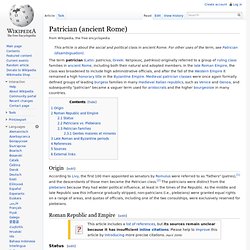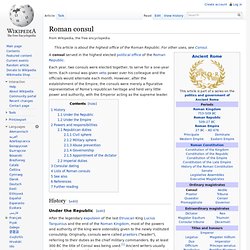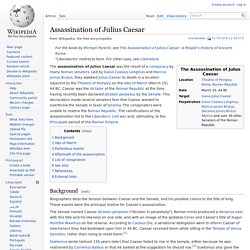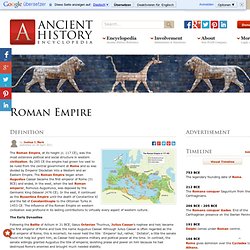

Patrician (ancient Rome) According to Livy, the first 100 men appointed as senators by Romulus were referred to as "fathers" (patres),[1] and the descendants of those men became the Patrician class.[2] The patricians were distinct from the plebeians because they had wider political influence, at least in the times of the Republic.

As the middle and late Republic saw this influence gradually stripped, non-patricians (i.e., plebeians) were granted equal rights on a range of areas, and quotas of officials, including one of the two consulships, were exclusively reserved for plebeians. Patricians were historically afforded more privileges than plebeians. They were better represented in the Roman assemblies. The Comitia Centuriata, the main legislative body, was divided into 193 voting centuriae (centuries).
The first two houses (which consisted largely of patricians) together had 98 centuriae, a number which was enough to obtain a majority, despite the fact that they were fewer in number. Bury, John B. (1911). Roman consul. A consul served in the highest elected political office of the Roman Republic.

Each year, two consuls were elected together, to serve for a one-year term. Each consul was given veto power over his colleague and the officials would alternate each month. However, after the establishment of the Empire, the consuls were merely a figurative representative of Rome’s republican heritage and held very little power and authority, with the Emperor acting as the supreme leader. History[edit] Assassination of Julius Caesar. Background[edit] Biographers describe tension between Caesar and the Senate, and his possible claims to the title of king.

These events were the principal motive for Caesar's assassination. Plutarch and Suetonius are similar in their depiction of these events, but Dio combines the stories writing that the tribunes arrested the citizens who placed diadems or wreaths on statues of Caesar. He then places the crowd shouting "rex" on the Alban Hill with the tribunes arresting a member of this crowd as well. The plebeian protested that he was unable to speak his mind freely.
Suetonius adds that Lucius Cotta proposed to the Senate that Caesar should be granted the title of "king" for it was prophesied that only a king would conquer Parthia.[5] Caesar intended to invade Parthia, a task that later gave considerable trouble to Mark Antony during the second triumvirate. His many titles and honors from the Senate were ultimately merely that, honorary. Ides of March[edit] Portentous events[edit] Plebs. Plebs in ancient Rome[edit] In Latin the word plebs is a singular collective noun, and its genitive is plebis.

Dissatisfaction with the status quo occasionally mounted to the point that the plebeians engaged in a sort of general strike, a secessio plebis, during which they would withdraw from Rome, leaving the patricians to themselves. From 494 to 287 BC, five such actions during the so-called "Conflict of the Orders" resulted in the establishment of plebeian offices (the tribunes and plebeian aediles), the publication of the laws (the Law of the Twelve Tables), the establishment of the right of plebeian-patrician intermarriage (by the passage of the Lex Canuleia), the opening of the highest offices of government and some state priesthoods to the plebeians, and passage of legislation (the Lex Hortensia) that made resolutions passed by the assembly of plebeians, the concilium plebis, binding on all citizens.
Noble plebeians[edit] United States military academies[edit] British Empire[edit] Roman Empire. The Roman Empire, at its height (c. 117 CE), was the most extensive political and social structure in western civilization.

By 285 CE the empire had grown too vast to be ruled from the central government at Rome and so was divided by Emperor Diocletian into a Western and an Eastern Empire. The Roman Empire began when Augustus Caesar became the first emperor of Rome (31 BCE) and ended, in the west, when the last Roman emperor, Romulus Augustulus, was deposed by the Germanic King Odoacer (476 CE).
In the east, it continued as the Byzantine Empire until the death of Constantine XI and the fall of Constantinople to the Ottoman Turks in 1453 CE.